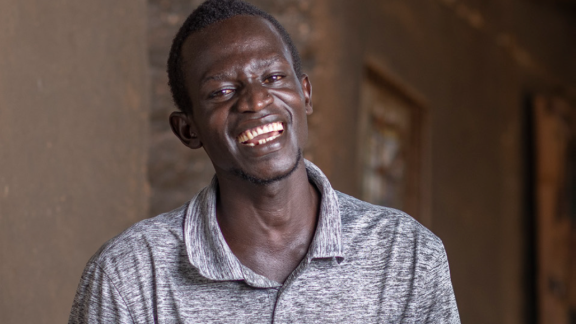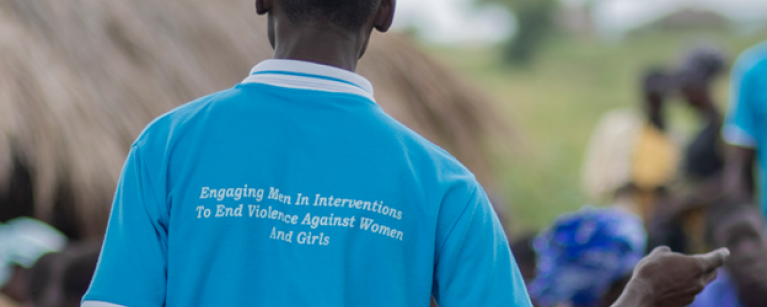Gone are the days when traditional gender roles dictated how men and women interacted in the home. Women in Bidibidi settlement now have a voice and can easily express themselves due to the supportive structures that have been put in place.
As Sukran David Micheal, a Male Champion in Bidibidi Zone 3, explains, this change has been significant. He reflects on a time not long ago when domestic life was marred by gender-based violence (GBV) and harmful stereotypes.
“Men would come home after drinking, demanding food from their wives, even when there was barely enough to share”
He further explains that men often abandoned household responsibilities like farming, child¬care, and meal preparation leaving everything to their wives while expecting to be served on demand.
“When women couldn’t meet those expectations, it would lead to violence,” he says. “However, after we, as selected leaders, received training from CECI, we began raising awareness among other men about the impacts of GBV and the need for women's empowerment and equity. As a result, attitudes have shifted significantly. Men now actively help their wives with household tasks, encouraging more harmonious relationships within their homes and communities.” He commends this positive change.

Sukran David Micheal, Male Champion in Bidibidi Refugee Settlement, Zone 3
Additionally, he reflects on the challenges faced before the project’s intervention. He notes that, in the past, men in the settlements often restricted their wives from leaving the home or participating in community activities, silencing them even in public spaces. This created significant tension, as women longed for a voice and a role in their communities.
“Now, many men are pleased because their wives are free to work and earn money to support the family, with some even taking on leadership roles,” Sukran David Micheal noted.
The impact of the interventions illustrates how shifting perspectives can break the cycle of violence and promote a more equitable community. It highlights the importance of engaging men in the fight against GBV and promoting women’s empowerment.
Oxfam in Uganda, with funding from DANIDA through Oxfam Denmark, is implementing a Strategic Partnership program from 2022 to 2025, titled 'Humanitarian Development and Peace Initiatives for Crisis-Affected Populations project'. This initiative focuses on economic justice, inclusive democracies, education for active citizenship, inclusive peacebuilding, humanitarian action, and resilience. It is carried out in collaboration with four Refugee-Led Organizations, one national CBO, a cultural institution, and four Non-Governmental Organizations. This initiative is designed to reach a target of 42,645 individuals across both refugee and host communities.
